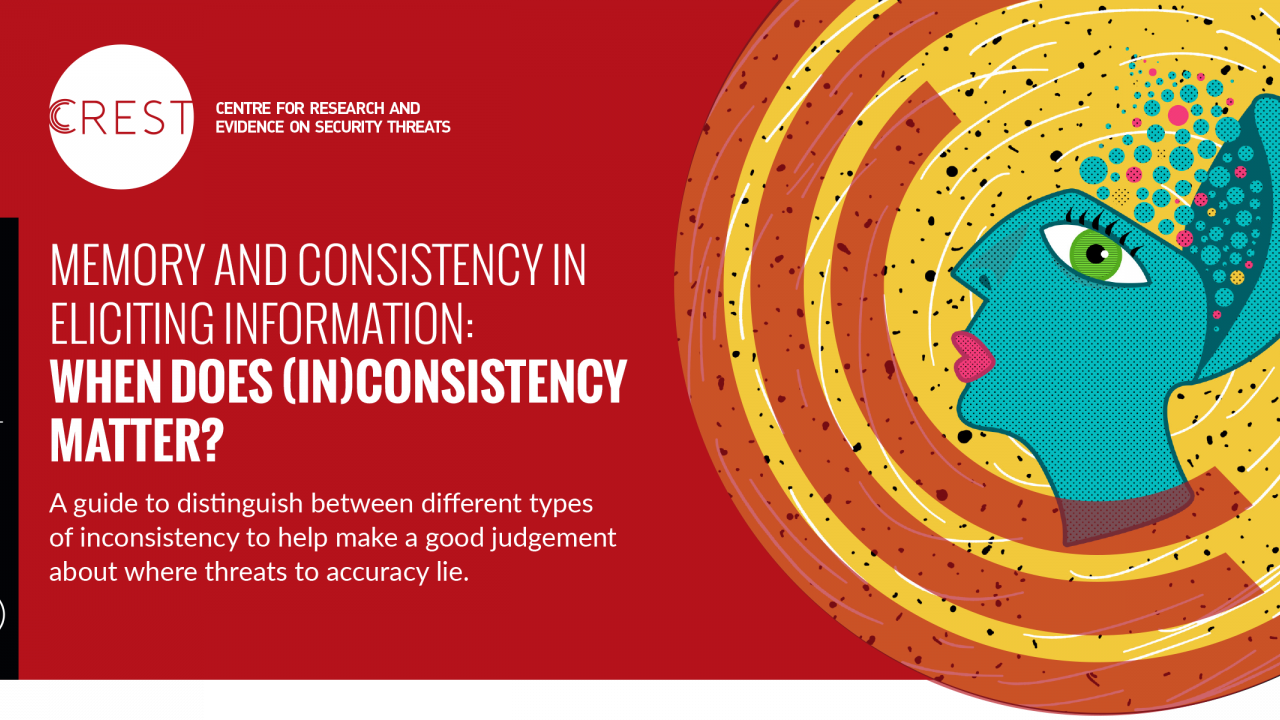The consistency of information provided either within the same account or between several accounts is often used to evaluate the overall accuracy of the information or assess the credibility of the interviewee. However, there are a number of factors that should be considered when assessing the overall consistency of a remembered account.
There are a number of factors that should be considered when assessing the overall consistency of a remembered account.
First, there are different types of inconsistency. Some inconsistencies are the result of naturally occurring memory phenomena. The way people remember and recall things leads to natural (and non-deliberate) inconsistencies. Other types of inconsistency may be more problematic and may warrant further consideration.
Second, only certain types of inconsistency are associated with an increased likelihood of memory error. This means that understanding what type of inconsistency you are assessing is important for estimating accuracy.
So it’s important for interviewers to distinguish between different types of inconsistency so they can make a good judgement about where threats to accuracy lie. How can they do this?
This guide details how to distinguish between different types of inconsistency and how to help make a good judgement about where threats to accuracy lie.
Read more
- Fisher R. P., Brewer, N., Mitchell, G. (2009). The relation between consistency and accuracy of eyewitness testimony: Legal versus cognitive explanations. In: R. Bull, T. Valentine, T. Williamson. Handbook of psychology of investigative interviewing: Current developments and future directions. John Wiley & Sons, Ltd.
- Hope, L., Gabbert, F., Fisher, R. P. and Jamieson, K. (2014). Protecting and enhancing eyewitness memory: The impact of an initial recall attempt on performance in an investigative interview. Applied Cognitive Psychology, 28, 304–313.
Copyright Information
As part of CREST’s commitment to open access research, this text is available under a Creative Commons BY-NC-SA 4.0 licence. Please refer to our Copyright page for full details.
IMAGE CREDITS: Copyright ©2024 R. Stevens / CREST (CC BY-SA 4.0)






